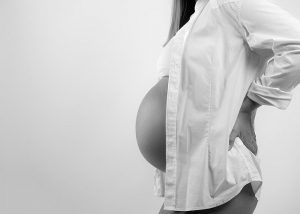 Pregnancy is a time when you must make sure to take in enough vitamins that not only your body, but your growing baby needs as well. This is also a good time to take multivitamin and mineral supplements to ensure the best health for you and your baby. However, despite the convenience of vitamin supplements, you must also be aware of negative consequences of vitamin overdose. It is then very important to know the right pregnancy vitamin requirements to ensure that you are nourishing your body and baby just right. Here are some of the important pregnancy nutrients and an idea of how much you need to take.
Pregnancy is a time when you must make sure to take in enough vitamins that not only your body, but your growing baby needs as well. This is also a good time to take multivitamin and mineral supplements to ensure the best health for you and your baby. However, despite the convenience of vitamin supplements, you must also be aware of negative consequences of vitamin overdose. It is then very important to know the right pregnancy vitamin requirements to ensure that you are nourishing your body and baby just right. Here are some of the important pregnancy nutrients and an idea of how much you need to take.
Vitamin A aids in properly developing your baby’s teeth and bones, as well as their eyes, heart and immune system. A deficiency in this vitamin is linked to problems with vision and hearing. Pregnant mothers are advised to consume at least 2,500 IU or 770 micrograms of vitamin A per day, and double the dose when breastfeeding. A maximum dosage of 3,000 mcg (10,000 IU) must not be exceeded as it can lead to adverse effects and toxicity.
Vitamin B6 and B12
These two B vitamins are particularly important during pregnancy. Vitamin B6 or pyridoxine as well as vitamin B12 both contribute to the proper development of the baby’s brain and nervous system. These vitamins also help in the formation of red blood cells in both mother and child. Pregnant mother should take in at least 1.9 mg of vitamin B6 and 2.6 mcg of B12 per day, with figures only slightly higher when nursing. The benefits of folic acid for pregnancy are related to that of these B vitamins, as they work hand in hand for the baby’s optimum development.
Vitamin C
Vitamin C is very vital during pregnancy as it helps in the absorption of iron and to build a healthy immune system. Vitamin C also helps in the building of cells and tissues. A recommended dose of at least 85 mg of vitamin C is recommended for pregnant mothers. Doses of 500mg are normal and acceptable, as vitamin C is water soluble.
Vitamin D
Pregnancy is not a good time for vitamin D deficiency. This sunshine vitamin is vital for the absorption of calcium and many other nutrients, which in turn is important for the development of healthy bones and healthy heart. At least 1,000 IU of vitamin D per day is recommended for pregnant mothers.
Vitamin E
Vitamin E is also essential during pregnancy as it assists in the formation of muscles and red blood cells in the growing fetus. Lack of vitamin E has been directly linked with pregnancy hypertension (pre-eclampsia) and low birth weight. Care must be taken not to overdose in vitamin E as high amounts can lead to drastic effects. Pregnant ladies are recommended to take at least 20 mg of vitamin E, but not more than 500 mg daily.
Samuel Ken writes about the benefits of natural health supplements. Visit his website to learn more about the link between vitamin B6 and pregnancy.



-Heart Disease: It may come as no surprise that the number one killer of girls in America also contributes to increased risk in the course of pregnancy. If heart disease is severe before a woman becomes pregnant, the danger is even greater. Because pregnancy puts increasing demand on the heart, heart disease may worsen during pregnancy, or its symptoms may possibly appear for the very first time. In lots of circumstances, ladies with heart disease give birth to healthy babies with no long term effects.